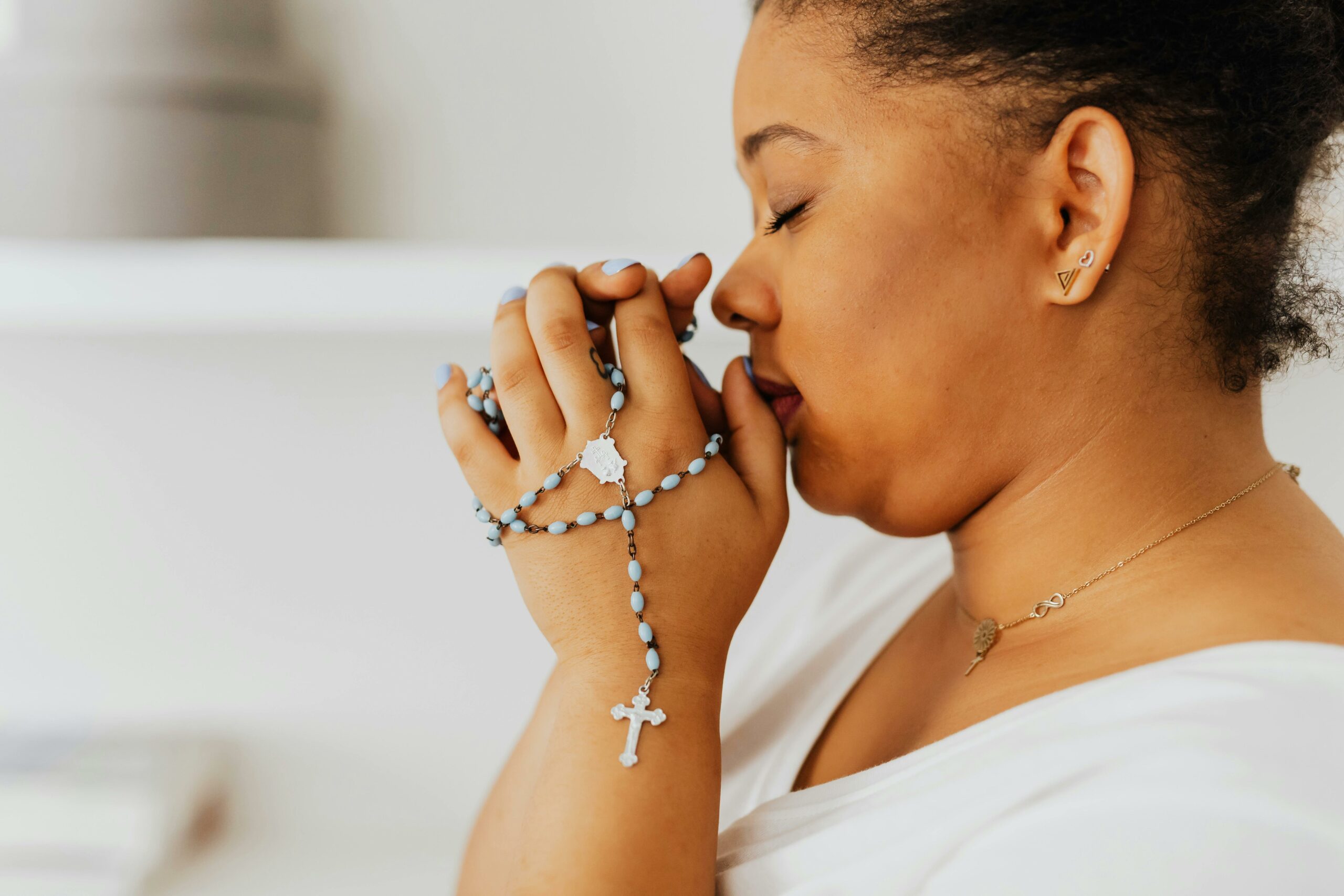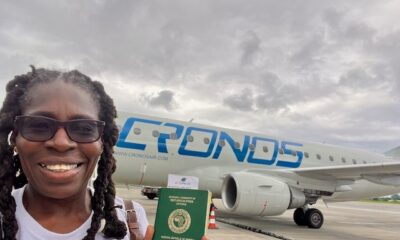Features
Is Religion Helping People Find Peace in The Most Unsettling Circumstances?

Some mornings, the distant sound of a church speaker reaches my room, echoing the voice of a preacher. When I wake up to the voice sometimes, I say aameen to the voice – even though I’m not a Christian – as the preacher is always praying. And I imagine the congregation before him, all sweaty, eyes squeezed closed, screaming amen! to the prayers.
“No matter how costly the cement gets, you will build your house this year! No matter how affordable drugs get, you will never fall sick! No matter how high the dollar rises, you will buy your car this year! No matter how tough the economy is, you will never lack! Ni oruko Jeesu!”
Religion has come under a lot of criticism in Nigeria, notably because the majority of believers believe that everything happens by the will of God. At present, Nigerians feel apprehensive about tuning into the news, uncertain about the bleak updates awaiting their ears. Recent months have brought unfavourable experiences for the citizens; the economy has worsened, crippled by inflation and subsidy removal, leading to soaring prices of commodities and a significant drop in the value of the Naira against major foreign currencies. Survival seems like an unattainable feat. Yet, believers continue to view these events as God’s handiwork, despite the underlying issues stemming from poor leadership.
But I’ve been reflecting on how religion gives its believers hope and something to hold onto in times of adversity. I can’t help but consider the significance it holds. It’s clear that without religion, people would have done the unimaginable due to continual losses in their businesses and diminishing purchasing power.
Thousands of goods have been lost or perished due to soaring prices. The weight of debts tightens around some people’s necks like a snake, hunger gnaws at their stomachs. Yet, when they enter their respective places of worship, they hear comforting words from their leaders and preachers who tell them everything is from God. They are reminded that God has a way of testing His believers, and it is He who restores ease after hardship. This instils hope in them to keep on living through changing times. It is this same hope they’ve clung to since the days when petrol was #60 per litre until it became #600 per litre.
The effect of this is how it can lead believers into a state of delusion. While a country’s problems often lie in the hands of the government, the conviction that everything is a test from God strips them of the right or consciousness to demand better, rightly, and to hold leaders accountable. At my mosque, the Imam told us that complaining about hardship is somewhat of a sin as everything is God’s doing, and complaining means we’re challenging God’s will. Instead, we were urged to keep faith and strengthen our belief because God will eventually make life better. Even if life does get better and one can afford to build a home with expensive cement, it doesn’t erase the fact that the construction involved hardship or could have been built at a lower cost and through fairer means. Religious leaders, like the Imam at my mosque, are part of the reasons citizens may struggle to demand better governance when leaders falter.
Now, one might ask, if religious leaders do not espouse this belief to believers and encourage them to demand better, how viable is that approach, especially considering previous demands that ended tragically with lives lost? So when religious leaders offer hopeful words and prayers, it becomes the only anchor they can hold onto. Despite the seemingly unreachable light at the end of the tunnel, they grasp onto the faint glimmer, even if it feels like an endless journey towards a light that may not exist.
In Nigeria, religion acts as both a beacon of hope and a double-edged sword. While it brings solace and strength to many grappling with daily struggles, it can also lull believers into a passive acceptance of circumstances beyond their control. The fervent prayers and promises of divine intervention offer comfort in the face of economic hardship and political turmoil. Yet, this reliance on faith hinders the demand for accountability and change from those in power. When religious leaders attribute hardships to God’s tests, I believe it stifles the urgency for societal progress. Nonetheless, in a place like Nigeria, hope seems to be the most affordable currency, offering a lifeline for many and promising a glimmer of light in tough times. Striking a balance between finding solace in faith and advocating for progress requires a nuanced approach to navigating the intertwining complexities of belief and action.
God help us.
***
Feature Image by Karolina Grabowska on Pexels























